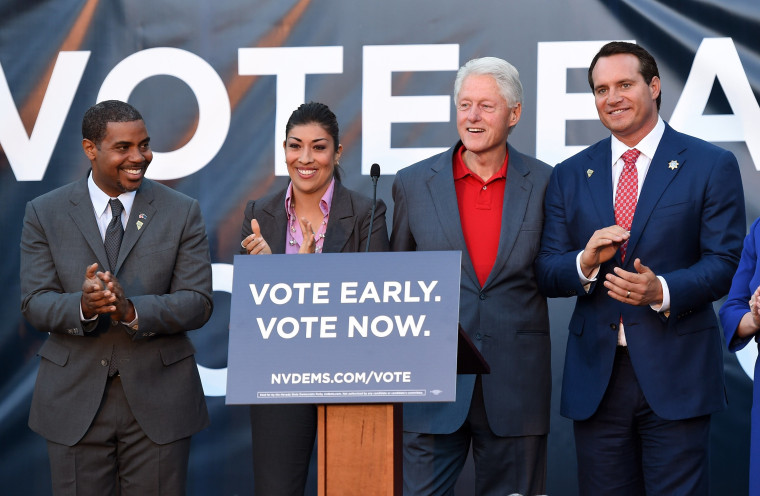Minnesota Sen. Patricia Torres Ray was the only Latina in the state’s Senate when she was elected a decade ago, joining two Latinas in the House.
Then in 2012, she was joined by state Sen. Melisa Franzen, who is Puerto Rican. Torres Ray, a Democrat of Colombian descent, had backed Franzen, also a Democrat, in her race. Now the two are trying to recruit a third Latina for an open seat Senate race in the state.
Latinas are 1.3 percent of state legislators of all racial and ethnic backgrounds and are just 1.6 percent of the members of Congress.
Of the 396 Latino state legislators nationally, 113 are women, less than a third.
The National Hispanic Caucus of State Legislators opened its national summit in Atlanta Thursday with the launch of Latinas Lead Initiative. The initiative is geared toward increasing the numbers of Latinas in politics and serving in state legislatures.
"Latinas play a pivotal role in our organization and we need to ensure that we increase their influence and change-making capacity, as well as their numbers, in state capitols across the U.S. and Puerto Rico. That is why we are launching the Latinas Lead initiative as the first event of our national summit," said NHCSL President Eduardo Bhatia, who also is the president of the Senate of the Commonwealth of Puerto Rico.
The catalyst for the launch: “It’s just the severe, severe underrepresentation of Latinas at all levels of government,” said Lucy Flores, a former Nevada Assembly member who is now running for Congress. “Latinas are so underrepresented there might as well be no Latinas.”
Torres Ray said Latinas Launch is critical for the community because Latina lawmakers often find themselves working in areas with large impact on the Latino community and that are key to issues affecting Latino families.
“We typically serve in education where we have significant needs and we have a young population that is fast growing,” Torres Ray said. “We also tend to serve in health care where there is significant need in the community. “
Organizers of Latinas Launch also hope to help Latina lawmakers, or those aspiring to serve in legislatures and higher office to meet with other women leaders not necessarily in elected office.
“The numbers right now for us (Latinos) are very low, but when you look at (Latinas) they are even lower. Our network and ability to connect with other women is pretty key right now in order to look for strategies to grow,” Torres Ray said.
Flores was elected in 2010 along with two other Latinas who together were the first Latinas to serve in the Nevada Assembly. Flores left to run for Nevada lieutenant governor, a race she lost and now is making a bid for Nevada’s 4th Congressional District seat. She faces three Democratic opponents in the June 14, 2016 primary.
“It’s so necessary,” Flores said of the Latinas Lead Initiative that will be housed within NHCSL. “There’s a lack of resources out there for Latinas to get into elected office and looking for development and to get into leadership positions and looking for that next step.”
Nine of the representatives in Congress are Latina. There are no Latinas in the U.S. Senate, although Rep. Loretta Sanchez, D-Calif., and Catherine Cortez Masto, D-Nev., are running for seats.
Torres Ray said supporting Latinas in office so they can advance, along with recruiting Latinas to run will be big parts of the initiative.
“Those who are state elected officials, the seats they leave, we need to think about who will replace them, but also how do we support these women who have a tremendous record and have done incredible work so they can move forward and advance in political career,” Torres Ray said.
“Often we have one Latina serving in the states and when she leaves, then we don’t have a bench,” she said. “We need to see who is ready to run and see how we encourage others to run for those spots being left vacant.”

